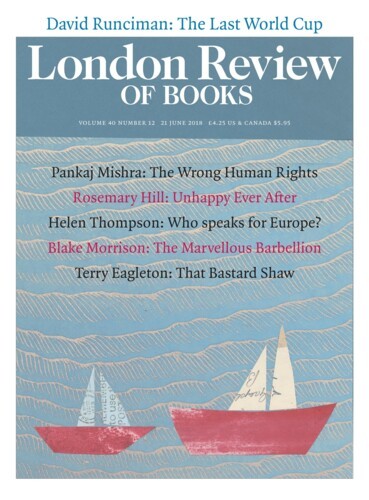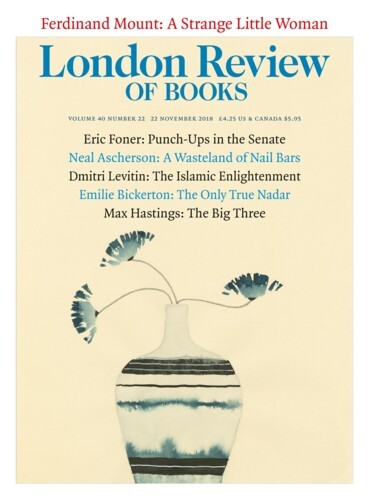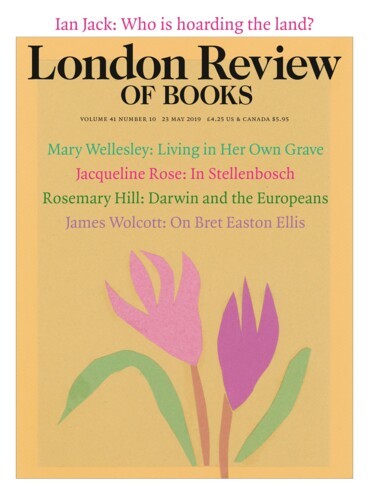Would I have heard of you? ‘The Female Persuasion’
Lauren Oyler, 21 June 2018
In chronological order, starting with her debut, Sleepwalking, which she wrote as a student at Brown and published in 1982 when she was 23, the page counts of Meg Wolitzer’s novels are: 272, 294, 352, 213, 224, 219, 307, 383, 304, 560, 464. A couple of young adult novels, published in 2011 and 2014, hit 304 and 272 respectively. Does this matter? To Wolitzer, yes. ‘I sometimes...





